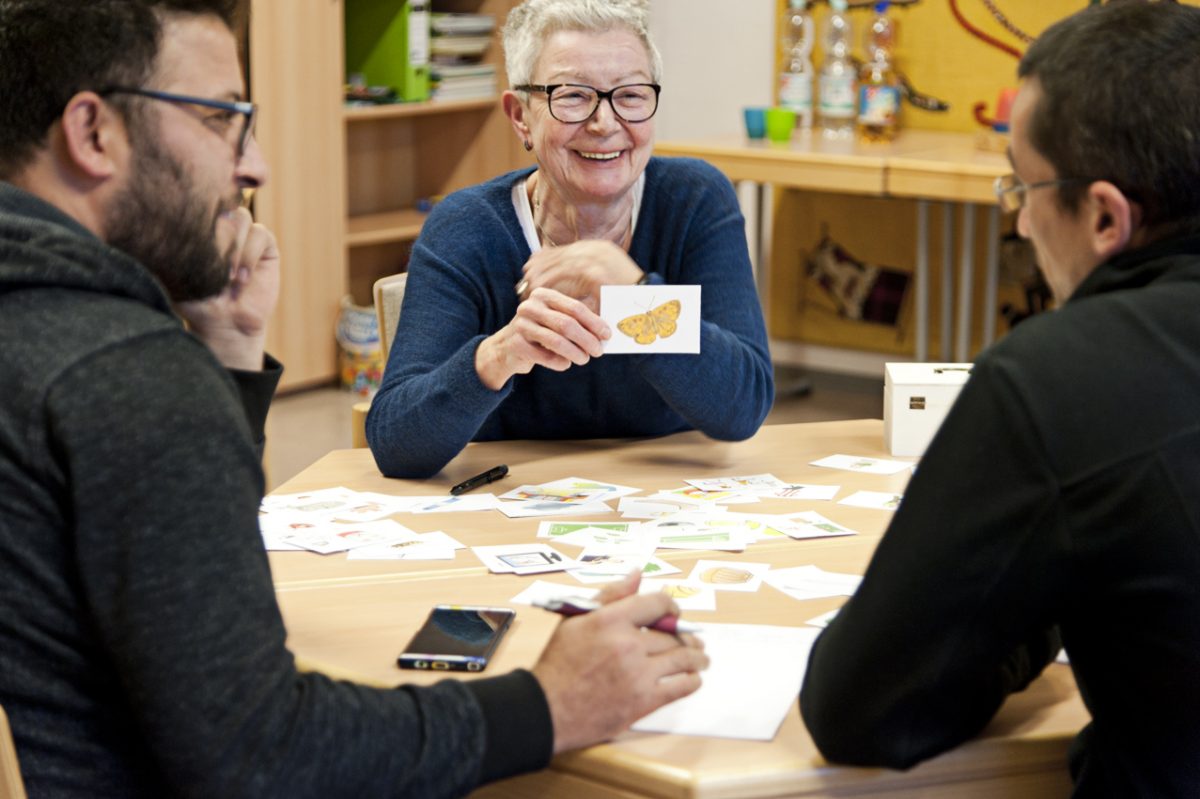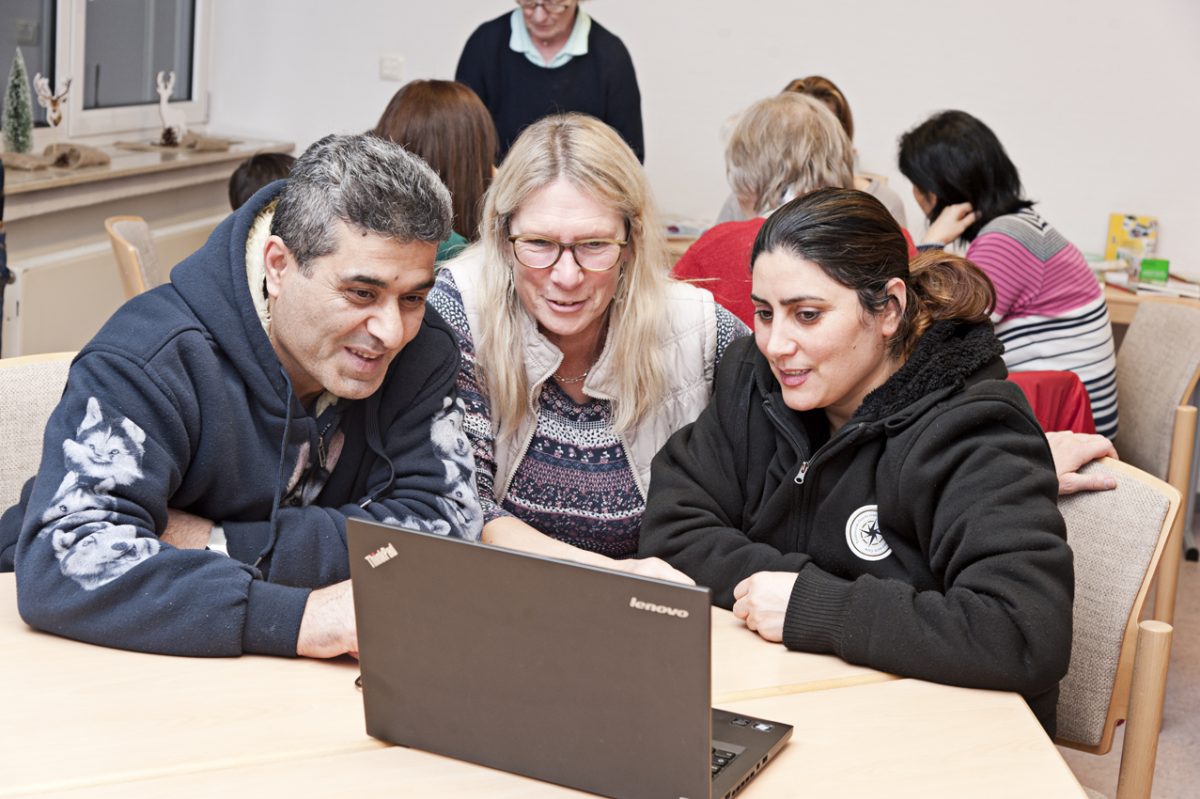In order to support refugees during the general and occupational language acquisition and to facilitate their integration into the workforce, the “Büchereifachstelle” (literally: library specialist department) has teamed up with the Coordination Center Fundraising of the Evangelical Church in the Rhineland (EKiR) to develop the EU-funded project “Sprachtreff – for integration in the countryside”.
This project is managed in cooperation with the Bonn Institute for Migration Research and Intercultural Learning (Bonner Institut für Migrationsforschung und Interkulturelles Lernen (BIM) e.V.), the Protestant Migration and Refugee Work / Integration Agency (Evangelischen Migrations- und Flüchtlingsarbeit Bonn (EMFA) / Integrationsagentur), the Diakonie Saar, the Protestant Adult Education Facility of Southern Rhineland (Evangelisches Erwachsenenbildungswerk Rheinland-Süd e.V.) and the Coordination Center Fundraising of the EKiR and is being implemented in the federal states Hesse, North Rhine-Westphalia, Rhineland-Palatinate and the Saarland.


Target Groups:
- Volunteers
who will earn qualifications as Speaking- and Reading-Mentors and will subsequently support refugees during their general and work-related language training. - Third-Country Nationals
who want to improve their language skills, establish closer contact to locals and want to improve their integration into the workforce. - Multipliers/ Disseminators
who wish to become part of the local networks and plan on contributing to the coordinated development of the offered activities.
The content of the Project:
- “Sprachtreffs” (literally “Speaking-Get-Togethers”) are set up as spaces offering information, language acquisition opportunities and a place to meet others. The spaces are equipped with access to a computer, a printer and internet. They are also available for information events.
- Information and materials concerning general and occupational language support are being assembled.
- Trained volunteers support refugees as Speaking- and Reading-Mentors or tandem partners during the general and occupational language acquisition.
- Within the communities, local and regional networks will be expanded and utilized to create synergies and to strengthen the local integration work.
The experiences of the pilot institutions will be collected and evaluated in order to provide recommendations for those interested.
